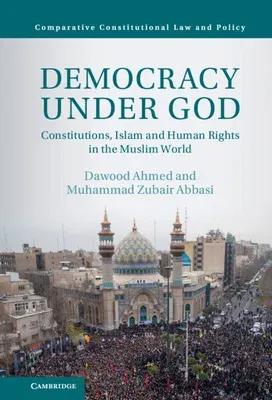Dawood Ahmed
(Author)Democracy Under God: Constitutions, Islam and Human Rights in the Muslim WorldHardcover, 2 March 2023

Qty
1
Turbo
Ships in 2 - 3 days
In Stock
Free Delivery
Cash on Delivery
15 Days
Free Returns
Secure Checkout

Part of Series
Comparative Constitutional Law and Policy
Print Length
225 pages
Language
English
Publisher
Cambridge University Press
Date Published
2 Mar 2023
ISBN-10
1107158052
ISBN-13
9781107158054
Description
Product Details
Book Format:
Hardcover
Country of Origin:
US
Date Published:
2 March 2023
Dimensions:
22.86 x
15.24 x
1.42 cm
ISBN-10:
1107158052
ISBN-13:
9781107158054
Language:
English
Location:
New York
Pages:
225
Publisher:
Weight:
480.81 gm